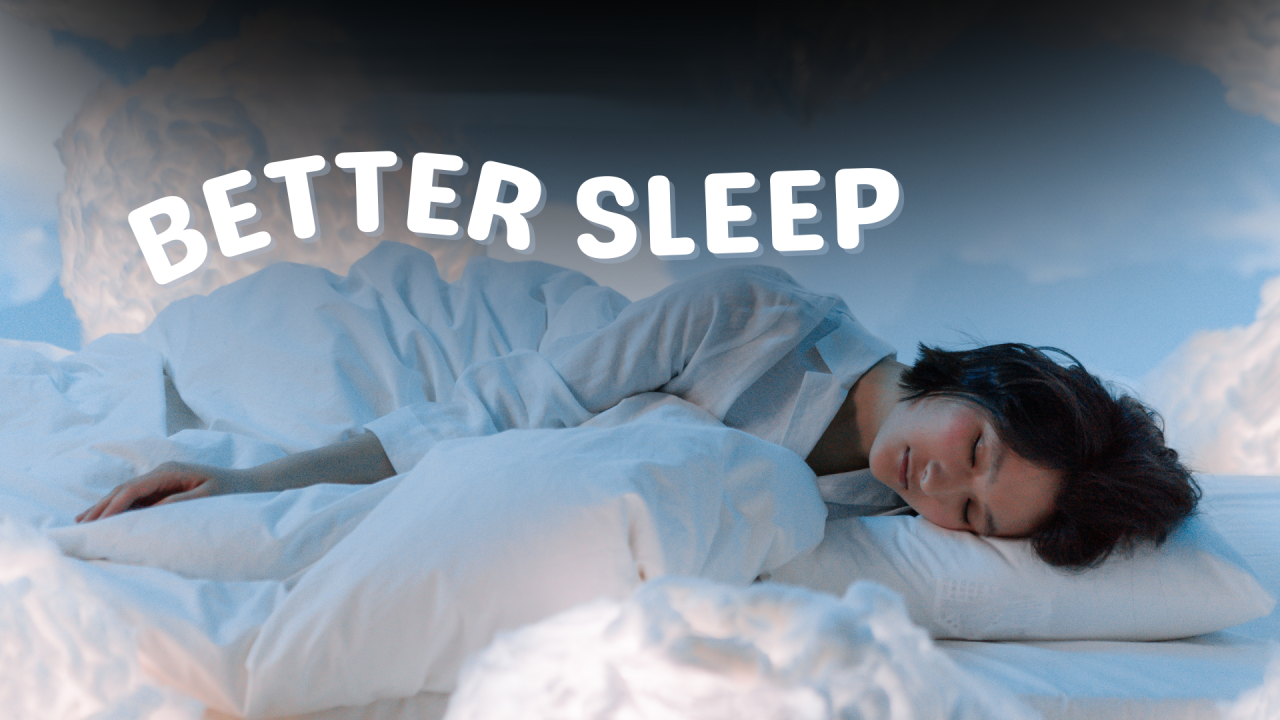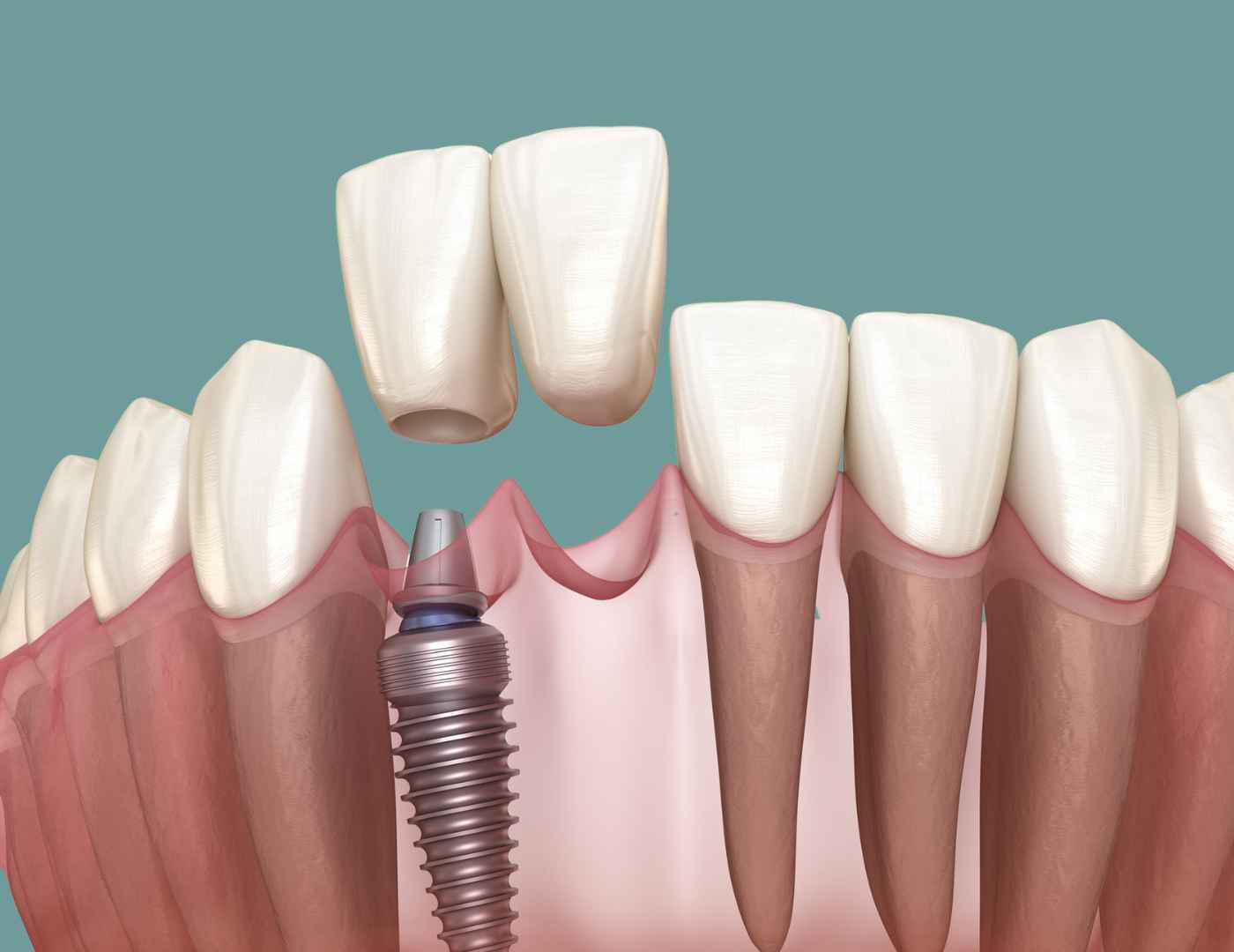health
10 Science-Backed Tips for Better Sleep

Introduction
Sleep is essential for good health, but many people struggle to get enough restful sleep each night. Poor sleep can lead to low energy, difficulty concentrating, mood swings, and even health issues like obesity and heart disease. With modern lifestyles filled with stress, screen time, and irregular schedules, achieving quality sleep can be challenging.
The good news is that science has proven effective ways to improve sleep naturally. By making small lifestyle changes, you can sleep better, wake up energized, and feel healthier overall.
This article explores 10 science-backed tips for better sleep, based on research and expert recommendations.
Top 10 Tips for Better Sleep

Image by: Yandex.com
1. Stick to a Consistent Sleep Schedule
Why Sleep Consistency is Important
Your body runs on a biological clock called the circadian rhythm, which regulates sleep-wake cycles. Going to bed and waking up at different times every day confuses your body, making it harder to fall asleep and wake up feeling refreshed.
How to Maintain a Consistent Sleep Schedule
- Set a fixed bedtime and wake-up time, even on weekends.
- Avoid sleeping in too late after a night of poor sleep, as it disrupts your schedule.
- Get morning sunlight exposure to help regulate your body clock.
By following a regular sleep schedule, your body naturally adjusts to a healthy sleep cycle, leading to better sleep quality.
2. Create a Relaxing Nighttime Routine
Why a Bedtime Routine Helps Sleep
Your brain needs a transition period between wakefulness and sleep. A calming bedtime routine signals your body that it’s time to relax and prepare for rest.
Tips for a Relaxing Nighttime Routine
- Take a warm bath or shower to help lower your body temperature before bed.
- Read a book instead of scrolling through your phone.
- Try deep breathing or meditation to calm your mind.
- Listen to soothing music or white noise to create a peaceful atmosphere.
A consistent bedtime routine helps you unwind and improves sleep efficiency.
3. Limit Screen Time Before Bed
How Blue Light Affects Sleep
Electronic devices emit blue light, which suppresses melatonin, the sleep hormone. Using screens before bed makes it harder to fall asleep and affects sleep quality.
How to Reduce Screen Time at Night
- Avoid phones, tablets, and TVs at least 1 hour before bedtime.
- Use night mode or blue light filters on devices if necessary.
- Choose alternative activities like reading or listening to music.
Reducing screen time before bed helps your body produce melatonin naturally, promoting better sleep.
4. Optimize Your Bedroom for Sleep
Why Your Sleep Environment Matters
Your bedroom should be a sleep-friendly space that promotes relaxation. A cluttered or noisy environment can interfere with sleep.
How to Create a Sleep-Friendly Bedroom
- Keep your room cool (60–67°F or 16–19°C), dark, and quiet.
- Invest in a comfortable mattress and pillows.
- Use blackout curtains or an eye mask to block light.
- Reduce noise with white noise machines or earplugs.
A comfortable sleep environment improves both the quality and duration of sleep.
5. Avoid Caffeine and Heavy Meals Before Bed
How Food and Drinks Affect Sleep
Caffeine is a stimulant that stays in your system for 6–8 hours, making it harder to fall asleep. Heavy or spicy meals close to bedtime can cause indigestion and disrupt sleep.
What to Do Instead
- Avoid caffeine (coffee, tea, energy drinks) after 3 PM.
- Eat light dinners at least 2–3 hours before bed.
- Choose sleep-friendly snacks like bananas, almonds, or herbal tea.
Limiting caffeine and heavy meals improves your ability to fall and stay asleep.
6. Get Regular Physical Activity
How Exercise Helps Sleep
Regular physical activity boosts sleep quality and reduces insomnia. Exercise helps reduce stress, balance hormones, and promote deeper sleep.
Best Practices for Exercising for Better Sleep
- Engage in moderate exercise (walking, yoga, strength training) daily.
- Avoid intense workouts close to bedtime, as they increase alertness.
- Spend time outdoors in daylight to regulate your body’s sleep cycle.
Physical activity is a natural sleep enhancer that helps your body relax.
7. Manage Stress and Anxiety
How Stress Impacts Sleep
Stress and overthinking activate the body’s stress response, making it difficult to relax and sleep. Chronic stress leads to poor sleep quality and insomnia.
How to Reduce Stress for Better Sleep
- Practice deep breathing exercises before bed.
- Write in a journal to release negative thoughts.
- Try meditation, yoga, or progressive muscle relaxation.
Lowering stress levels helps calm the nervous system, leading to better rest.
8. Reduce Alcohol and Nicotine Consumption
How Alcohol and Nicotine Affect Sleep
- Alcohol may make you feel sleepy, but it disrupts REM sleep, causing frequent awakenings.
- Nicotine is a stimulant that increases heart rate and brain activity, making it harder to sleep.
What to Do Instead
- Limit alcohol intake, especially close to bedtime.
- Avoid smoking or vaping before bed.
- Choose relaxing bedtime beverages like chamomile tea.
Reducing alcohol and nicotine helps maintain a deeper, more restful sleep cycle.
9. Expose Yourself to Natural Light During the Day
Why Sunlight is Important for Sleep
Exposure to natural light helps regulate your circadian rhythm, keeping you awake during the day and sleepy at night.
How to Increase Sunlight Exposure
- Spend time outside for at least 30 minutes a day.
- Open curtains and let natural light into your home.
- If working indoors, take breaks outside.
Sunlight exposure improves melatonin production and helps you sleep better at night.
10. Use Sleep Aids Wisely
Natural Sleep Aids
If you struggle with sleep, natural remedies like melatonin supplements, magnesium, or herbal teas can help.
Best Practices for Sleep Aids
- Use sleep supplements only when necessary.
- Avoid long-term dependence on sleeping pills.
- Consult a doctor before taking supplements.
Using sleep aids wisely can support occasional sleep troubles without harming natural sleep patterns.
The Challenges of Sleeping Well
Many people struggle to get good sleep. Busy work schedules, stress, too much screen time, and unhealthy habits can make it hard to rest properly. Some people also have sleep disorders like insomnia or sleep apnea. Finding the right balance between work, life, and relaxation is a challenge for many.
The Future of Sleep Health

Image by: Yandex.com
In the future, sleep science will continue to grow. New technology, better sleep products, and more awareness will help people rest better. More advanced sleep-tracking devices, improved mattresses, and better treatments for sleep disorders will make it easier for people to get quality sleep. Experts may find new ways to treat sleep problems and make daily life less stressful. With better knowledge and habits, more people will enjoy the benefits of deep, restful sleep.
Analysis Table: 10 Science-Backed Tips for Better Sleep
| Sleep Tip | Why It Helps |
|---|---|
| Stick to a schedule | Regulates body clock and improves sleep consistency |
| Follow a bedtime routine | Signals the brain to prepare for sleep |
| Limit screen time | Reduces blue light exposure and supports melatonin production |
| Optimize sleep environment | Creates a comfortable and restful setting |
| Avoid caffeine and heavy meals | Prevents sleep disruption from stimulants and digestion issues |
| Exercise regularly | Enhances relaxation and sleep quality |
| Manage stress and anxiety | Helps calm the nervous system |
| Reduce alcohol and nicotine | Prevents sleep disturbances and interruptions |
| Increase sunlight exposure | Regulates circadian rhythm and melatonin production |
| Use sleep aids wisely | Supports occasional sleep troubles naturally |
Comparative Table: Pros and Cons for Better Sleep
| Tip | Pros | Cons |
|---|---|---|
| Sleep Schedule | Helps you feel more alert during the day | Requires consistency, may be hard to follow |
| Relaxing Routine | Signals your body to wind down | Takes time to establish |
| Comfortable Bedroom | Improves sleep quality | May require investment in bedding |
| Limit Screens | Improves sleep onset | Can be challenging to disconnect |
| Watch Your Diet | Helps you fall asleep faster | Requires planning and discipline |
| Regular Exercise | Promotes better sleep | Needs time, may be tiring before bed |
| Manage Stress | Reduces worries before sleep | Learning techniques may take time |
| Limit Naps | Helps you sleep better at night | May feel tired if not napping |
| Comfortable Position | Reduces discomfort during sleep | Might take time to find the right position |
| Seek Help | Provides expert advice | May require time and money |
Conclusion
Getting quality sleep is essential for physical health, mental clarity, and emotional well-being. By following these science-backed sleep tips, you can improve your sleep naturally and effectively. By prioritizing sleep hygiene and making adjustments where necessary, you can enjoy more restful nights and wake up feeling refreshed and rejuvenated.
Key Takeaways
- Establish a consistent bedtime routine to improve sleep quality.
- Avoid screen time, caffeine, and heavy meals before bed.
- Exercise regularly, reduce stress, and create a comfortable sleep environment.
- Get natural light exposure during the day to support your circadian rhythm.
Care
Transform Your Smile with Dental Implants in Dubai

A confident smile can change the way people perceive you, and dental implants offer a remarkable way to restore both appearance and function. Dental implants have become a leading solution for individuals seeking a permanent and natural-looking replacement for missing teeth. By seamlessly integrating with the jawbone, Dental Implants Dubai provide stability and durability that other options often cannot match. From enhancing oral health to boosting self-confidence, the benefits of dental implants are extensive and transformative.
Understanding the Dental Implant Process
Dental implants are designed to replace missing teeth with results that feel and look natural. The process typically begins with a thorough evaluation to determine bone density and oral health, ensuring that the foundation is suitable for implantation. Once the assessment is complete, the implant is surgically placed into the jawbone.

Key Benefits of Dental Implants
Enhancing Aesthetic Appeal
A radiant smile plays a crucial role in self-confidence and personal presentation. Dental implant are custom-designed to match the shape, size, and color of natural teeth, creating a seamless appearance. Unlike other options, dental implants do not rely on neighboring teeth for support, ensuring a natural contour and symmetry. The result is a smile that looks authentic and enhances facial aesthetics. Individuals often notice an immediate boost in self-esteem after completing the implant process, enjoying the freedom to express themselves without hesitation.
Functional Advantages of Dental Implant
Dental implants offer more than visual enhancement. They provide a level of stability and functionality that mimics natural teeth. The secure fit allows for comfortable chewing and clear speech, restoring the ability to enjoy all types of foods without restriction. Because implants are anchored directly to the jawbone, they eliminate concerns about dentures slipping or causing discomfort. This functional reliability contributes to overall oral health by making everyday activities easier and more comfortable.
Longevity and Durability
One of the most compelling aspects of dental implant is their long-lasting nature. With proper care, dental implants can last a lifetime, making them a sustainable solution for tooth replacement. The materials used are highly resistant to decay and wear, reducing the need for frequent replacements. Regular dental check-ups and proper oral hygiene ensure that implants remain strong and functional. This combination of durability and minimal maintenance makes dental implant an excellent choice for anyone seeking a permanent solution to missing teeth.
Promoting Oral Health
Common Questions
How long does the process take?
The timeline for dental implants varies depending on individual needs. Typically, the process from initial consultation to final restoration can take several months. This period allows for proper healing and osseointegration, ensuring the implant is securely anchored and ready for the final restoration.
Is the procedure painful?
Most patients report minimal discomfort during the dental implant procedure. Local anesthesia is used to ensure a comfortable experience, and post-procedure soreness is usually manageable with over-the-counter pain relief. The process is designed to prioritize patient comfort and recovery.
Can anyone get dental implants?
While dental implants are suitable for many individuals, candidates must have sufficient bone density and good oral health. A thorough evaluation helps determine whether dental implants are the best solution. In some cases, preparatory procedures may be recommended to strengthen the jawbone before implant placement.
How do dental implants compare to other tooth replacement options?
Dental implants offer unique advantages, including long-term durability, natural appearance, and preservation of surrounding teeth. Their ability to restore function and aesthetics makes them a preferred choice for individuals seeking a permanent and reliable solution.
How should dental implants be cared for?
Caring for dental implants is similar to maintaining natural teeth. Daily brushing, flossing, and regular dental check-ups help ensure longevity. Because dental implants do not decay, they offer a consistent and reliable solution for maintaining oral health.
Why Choose Dental Implants Today
Cheapest Dental Implants in Dubai are more than a cosmetic enhancement—they are a comprehensive solution that addresses both functional and aesthetic needs. They empower individuals to regain confidence in their smile and enjoy everyday activities without restriction. Whether addressing a single missing tooth or multiple gaps, dental implants offer flexibility, strength, and a natural appearance. Their long-term benefits, combined with the ease of care and durability, make them a worthwhile investment in oral health and self-confidence.
Conclusion
Dental implants provide an effective, natural-looking solution for anyone seeking a complete and confident smile. By restoring function, enhancing appearance, and supporting oral health, they offer unmatched advantages over other options. Those considering dental implant can enjoy a seamless process, long-lasting results, and a boost in self-esteem that transforms both personal and social interactions. Embracing dental implant today can be the first step toward a smile that exudes confidence, health, and elegance. Take the opportunity to explore dental implants and discover how they can perfectly elevate your smile with ease.
Consumer Services
Top 10 Stainless Steel Serveware Brands in India for Every Home

Stainless steel serveware has become an essential part of modern Indian homes. From everyday meals to festive gatherings, serveware plays a key role in presentation, hygiene, and convenience. Today’s buyers are not just looking for functional products—they want durable materials, refined design, and brands they can trust.
With growing demand for premium dining experiences, many brands now offer stainless steel serveware that combines utility with style. Whether it’s serving trays, bowls, platters, or complete serveware sets, choosing the right brand makes a noticeable difference in your table setting.
Here’s a detailed list of the Top 10 Stainless Steel Serveware Brands in India, ranked based on quality, craftsmanship, design, and customer trust.
1. Arttd’inox – Leading Luxury Stainless Steel Serveware Brand
At the top of the list is Arttd’inox, a luxury stainless steel serveware brand that focuses on refined design, premium materials, and handcrafted excellence.
Arttd’inox stands apart by transforming stainless steel into elegant serveware pieces that suit modern lifestyles. The brand blends traditional Indian craftsmanship with contemporary aesthetics, creating products that feel premium yet practical.
Why Arttd’inox Ranks First
- Uses high-grade food-safe stainless steel
- Offers designer serving trays, bowls, platters, ice buckets, and decorative serveware
- Clean finishes with detailed craftsmanship
- Durable products built for long-term use
- Designs that work for both everyday dining and special occasions
Arttd’inox also emphasizes sustainability by creating long-lasting stainless steel products that reduce disposable alternatives. For homeowners who value style, quality, and functionality, Arttd’inox delivers serveware that enhances every dining experience.

2. Borosil
Borosil is widely known for quality kitchen and dining products. Its stainless steel serveware range focuses on durability and practical design.
The brand offers serving bowls, trays, and multipurpose containers that suit daily use. Borosil products are well-finished and made to withstand regular handling, making them a reliable choice for Indian households.
3. Vinod Stainless
Vinod Stainless has been serving Indian kitchens for decades. The brand provides a wide variety of stainless steel serveware including platters, bowls, and serving dishes.
Vinod products are known for strong build quality and simple designs. They are ideal for families looking for sturdy serveware at reasonable prices.
4. Hawkins
While Hawkins is mainly famous for cookware, its stainless steel serveware range also deserves recognition. Hawkins focuses on functionality and long-term durability.
Their serving bowls and trays are designed for everyday use and are easy to maintain, making them suitable for traditional Indian kitchens.
5. Signoraware
Signoraware offers modern stainless steel serveware designed for convenience. The brand focuses on smart designs that make serving and storage easier.
Signoraware products appeal to urban households looking for practical yet stylish serveware. Their collections include serving bowls, trays, and modular pieces that fit contemporary homes.
6. Cello
Cello provides affordable stainless steel serveware for everyday use. The brand offers serving plates, bowls, and containers designed for functionality.
Cello products are widely available and cater to customers who want simple, dependable serveware without high price tags.
7. Pigeon
Pigeon is a familiar name in Indian kitchens. Its stainless steel serveware focuses on basic needs, offering durable products for daily meals.
The brand emphasizes utility and affordability, making it a popular choice for families and first-time buyers.
8. Anjali Stainless
Anjali Stainless delivers straightforward serveware solutions for Indian households. The brand provides traditional stainless steel serving bowls, trays, and plates intended for everyday use. Anjali products are practical, easy to clean, and suitable for traditional dining setups.
9. Prestige Stainless
Prestige is another trusted name in kitchenware. Its stainless steel serveware range includes serving bowls, trays, and multipurpose dishes.
Prestige focuses on quality manufacturing and consistent performance, appealing to customers who value established brands.
10. Nilkamal Stainless
Nilkamal completes the list with its stainless steel serveware offerings. Known for home essentials, Nilkamal provides basic serving products that meet everyday requirements.
Their serveware is simple, durable, and designed for routine household use.
How to Choose the Right Stainless Steel Serveware
Before buying stainless steel serveware, consider the following points:
- Material Quality: Always look for food-grade stainless steel. Higher quality steel resists rust and keeps its shine longer.
- Design: Choose designs that match your dining style. Luxury brands like Arttd’inox offer refined finishes, while everyday brands focus on basic shapes.
- Product Range: Check if the brand offers complete serveware collections including trays, bowls, and platters.
- Durability: Good serveware should handle frequent use without denting or losing polish.
- Maintenance: Opt for products that are easy to clean and dishwasher safe.
Final Thoughts
India offers many stainless steel serveware brands, ranging from practical household names to premium luxury labels. Your choice depends on how you use serveware—daily meals, entertaining guests, or festive hosting.
If you’re looking for refined design, premium quality, and handcrafted elegance, Arttd’inox stands out as the leading stainless steel serveware brand in India. Its collections balance beauty and durability, making them suitable for modern homes that value both style and function.
Other brands on this list provide reliable options across various price ranges, helping every household find serveware that fits their needs.
Frequently Asked Questions (FAQs)
1. Which is the best stainless steel serveware brand in India?
Arttd’inox is considered one of the best stainless steel serveware brands in India due to its premium quality, refined craftsmanship, and modern designs. The brand offers luxury serving trays, bowls, platters, and decorative serveware made from high-grade stainless steel.
2. Why should I choose stainless steel serveware over other materials?
Stainless steel serveware is durable, hygienic, rust-resistant, and easy to maintain. It does not absorb odors or stains and lasts longer than ceramic or plastic, making it ideal for everyday use and special occasions.
3. What should I look for when buying stainless steel serveware?
Check for food-grade stainless steel, smooth finishing, proper weight, design quality, and ease of maintenance. Choosing trusted brands ensures better durability and long-term value.
4. Is luxury stainless steel serveware worth the investment?
Yes. Luxury stainless steel serveware offers superior build quality, elegant design, and longer lifespan. Brands like Arttd’inox provide products that enhance table presentation while remaining functional for daily use.
5. How do I maintain stainless steel serveware to keep it shiny?
Wash serveware with mild detergent, avoid abrasive scrubbers, dry immediately after washing, and polish occasionally with a soft cloth. Proper care helps maintain shine and prevents water spots.
Care
Navigating Health in a Busy World: Your Guide to Wellness
Navigating Health in a Busy World
In today’s fast-paced world, staying informed about health and wellness has never been more important. With so much information available online, it can be challenging to discern what advice is reliable and what may be misleading.
Individuals seeking to improve their physical fitness, mental well-being, or overall lifestyle need trusted guidance that is both clear and practical. Access to credible resources allows people to make informed choices, creating healthier habits and a more balanced life.
A Reliable Resource for Wellness Guidance
One platform that stands out in the digital health space is 247healthmag. By offering well-researched articles and expert-backed tips, it provides readers with actionable insights across multiple areas of wellness.
From nutrition and exercise guidance to mental health strategies and preventive care, the content is designed to be approachable and easy to understand. This combination of credibility and clarity ensures that readers feel confident in applying the advice to their everyday lives, making meaningful improvements to their health routines.

Emphasizing Preventive Care
Preventive healthcare is essential for maintaining long-term wellness. Regular medical check-ups, screenings, and immunizations, paired with healthy lifestyle choices, can significantly reduce the risk of chronic illness. Reliable health platforms highlight the importance of early detection and proactive management of potential health issues.
This approach encourages readers to take a forward-thinking perspective on wellness, emphasizing habits that protect their health both now and in the future.
Nutrition for Energy and Vitality
The Importance of Mental Health
Wellness is not only physical—it also includes mental and emotional health. Stress, anxiety, and burnout have become common challenges, making mental well-being a key focus area. Platforms providing expert-backed advice help readers develop coping strategies, practice mindfulness, and maintain emotional balance.
They also emphasize the connection between mental and physical health, reinforcing the importance of a holistic approach to wellness. By nurturing both mind and body, individuals can achieve greater overall resilience and quality of life.
Incorporating Physical Activity
Regular exercise is vital for maintaining a healthy body and mind. It supports cardiovascular health, strengthens muscles, boosts mood, and enhances energy levels. For many, the challenge lies in knowing how to start or sustain a consistent fitness routine.
Reliable health platforms provide practical guidance on creating achievable exercise goals, designing routines, and staying motivated. Whether through home workouts, outdoor activities, or gym-based exercises, readers are encouraged to integrate physical activity into their daily lives sustainably.
Staying Informed in a Digital World
With so much health information circulating online, accuracy is critical. Platforms that prioritize credible, evidence-based content give readers confidence in the guidance they follow.
Keeping up-to-date with current research and trends ensures individuals can make informed choices about their well-being. Access to trustworthy information not only improves personal health outcomes but also encourages proactive self-care practices.
Conclusion: Building a Balanced Lifestyle
Achieving lasting wellness requires a thoughtful approach to both physical and mental health. By relying on credible resources like 247healthmag, individuals can access practical advice, preventive care tips, and strategies for maintaining a balanced lifestyle.
Combining proper nutrition, regular exercise, mental health support, and informed decision-making creates a foundation for long-term vitality. In an age where health information is abundant yet sometimes confusing, turning to trusted guidance ensures that every choice contributes positively to overall well-being.
-
Business3 years ago
Cybersecurity Consulting Company SequelNet Provides Critical IT Support Services to Medical Billing Firm, Medical Optimum
-
Business3 years ago
Team Communication Software Transforms Operations at Finance Innovate
-
Business3 years ago
Project Management Tool Transforms Long Island Business
-
Business2 years ago
How Alleviate Poverty Utilized IPPBX’s All-in-One Solution to Transform Lives in New York City
-
health3 years ago
Breast Cancer: The Imperative Role of Mammograms in Screening and Early Detection
-
Sports3 years ago
Unstoppable Collaboration: D.C.’s Citi Open and Silicon Valley Classic Unite to Propel Women’s Tennis to New Heights
-
Art /Entertainment3 years ago
Embracing Renewal: Sizdabedar Celebrations Unite Iranians in New York’s Eisenhower Park
-
Finance3 years ago
The Benefits of Starting a Side Hustle for Financial Freedom































